Nothing for better work performance
25 Duke St, Marylebone, London W1U 1LD, The United Kingdom. www.highmoodfood.com
FERMENTATION WITH A GREATER GOAL
professional success and for your personal happiness. She believes that the complexity of the taste of fermentation is essential for intuitive cooking, which means that you cook exactly what you need. The savory taste of her 5K can even be addictive. According to Ursel, intuitive cooking is just as important as mental health.
with five kinds of fermented food: Kefir, Kombucha, Kimchi, Kraut and Kamut Sourdough.
Ursel spent her childhood eating fermented food, homemade bread and doing lots of yoga in West Berlin. During her training as a burn-out coach, she learnt about the difference a healthy diet can make, both for your
Delicatessen and food brand High Mood Food from the United Kingdom sees food as the generator that balances the body, soul and mind. Founder Ursel Barnes has a unique focus with her concept on intestinal health. Her menu consists mainly of live bacteria from fermented food, which is good for the gut flora. She applies her self-invented 5K model
NOTHING FOR BETTER WORK PERFORMANCE
Work performance is affected when employees feel sleepy. That is why in Japan sleeping at work is not only accepted, it is seen as a sign that someone has worked hard. The Japanese clearly have little trouble falling asleep whenever and wherever they want. Maybe it’s a good idea to introduce this concept in our Western work culture. It would certainly give your afternoon at work a whole new twist.
In Japan it’s completely normal to sleep whilst at work. The Japanese version of a work break is called ‘Inemuri’, which roughly translates into ‘sleeping while present’. Power napping during the work day ensures the necessary work efficiency. Naps help employees to maintain high performance levels and prevent mistakes. Especially in the afternoon when many people feel sleepy, it helps to have a quick power nap to improve concentration and boost creativity.
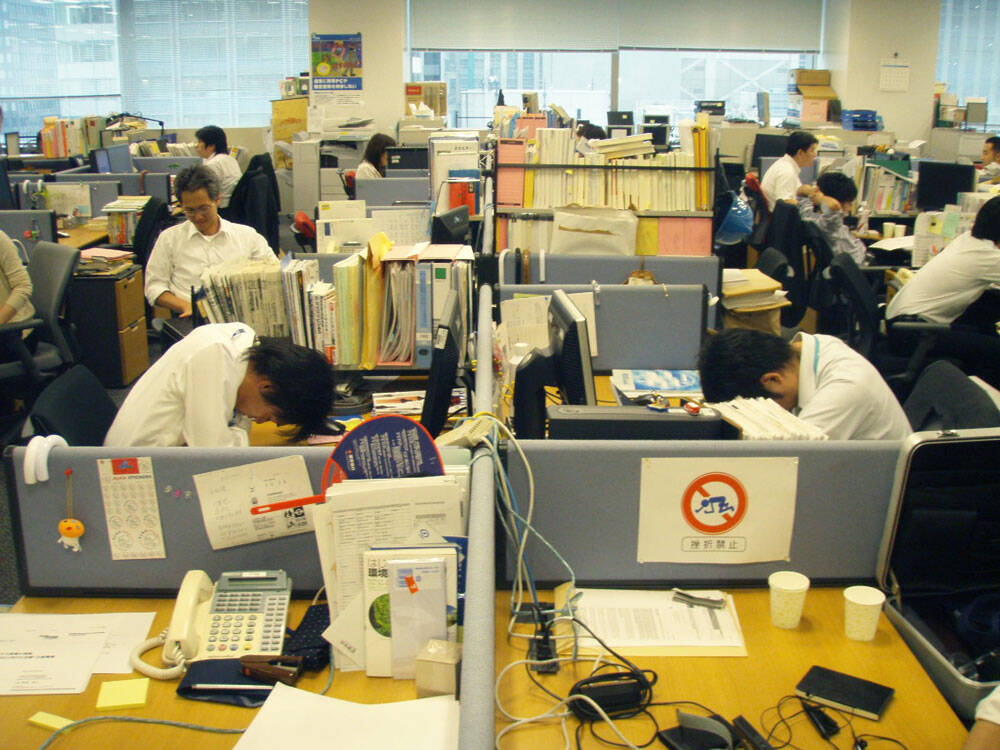
Fermentation with a greater goal
Healthy and feeling great
The WOW surprise effect
HEALTHY AND FEELING GREAT
Lastly, Bianca attaches great importance to the mental and emotional wellbeing of her team. “I want people to feel nice and happy here”, she says. “By enjoying a healthy lunch together and frequently taking time to do fun things as a group, we provide a pleasant work environment.”
and “I want to do something in return”. Bianca wants her meditation room to prevent her employees from getting burn-outs. “I personally always have more ideas than time and I can go pretty fast. I realized that it’s sometimes necessary to take a step back. It is partly for this reason that I had the meditation room built. This way everybody can relax and take a moment for themselves.”
Chaud Devant, a Dutch company that supplies clothing for the hospitality industry, ensures that its employees stay fit and healthy. To achieve this, the organization created a meditation room in their office building. CEO and founder Bianca van der Lee explains that her team feels like one big family that she wants to take care of. Employees that enjoy their job are often prepared to go the extra mile
THE WOW SURPRISE EFFECT
customer delight. Holacracy is the tool that allows every employee to receive instant feedback from customers and respond to it. ‘Create fun and a little weirdness’ and ‘build a positive team and family spirit’ are mottos that are taken literally at the company. Everyone is expected to pleasantly surprise a customer or colleague with a ‘WOW’ at least once a day.
heard within the company, without this having to be authorized from above. Faster and more creative decisions are just two of the multiple advantages.
The core values of Zappos, including delivering happiness, remain key as the company strives towards self-management. Since 2002, Tony offers his customers their ‘WOW service’. An important aspect of this is fostering
Since 2014, Zappos, an online shoe retailer from Las Vegas, makes use of holacracy. With this management model the company distances itself from traditional top down management. CEO Tony Hsieh uses it to establish a more self-managing and self-organizing company. Each employee can make changes, suggest innovations and make their voice
which creates a different effect than when you view food as healing and cleansing for body and mind. The following companies look at food as the source that influences the mental constitution and consider relaxation, in the broadest sense of the word, as medicine for a healthy mind.
Most people know that physical health is related to their lifestyle (including exercise and diet). However, not everybody considers the link between food and mental health. It goes without saying that what we eat is related to the questions why and how.
You can look at food as the pure enjoyment of ‘filling the stomach’,
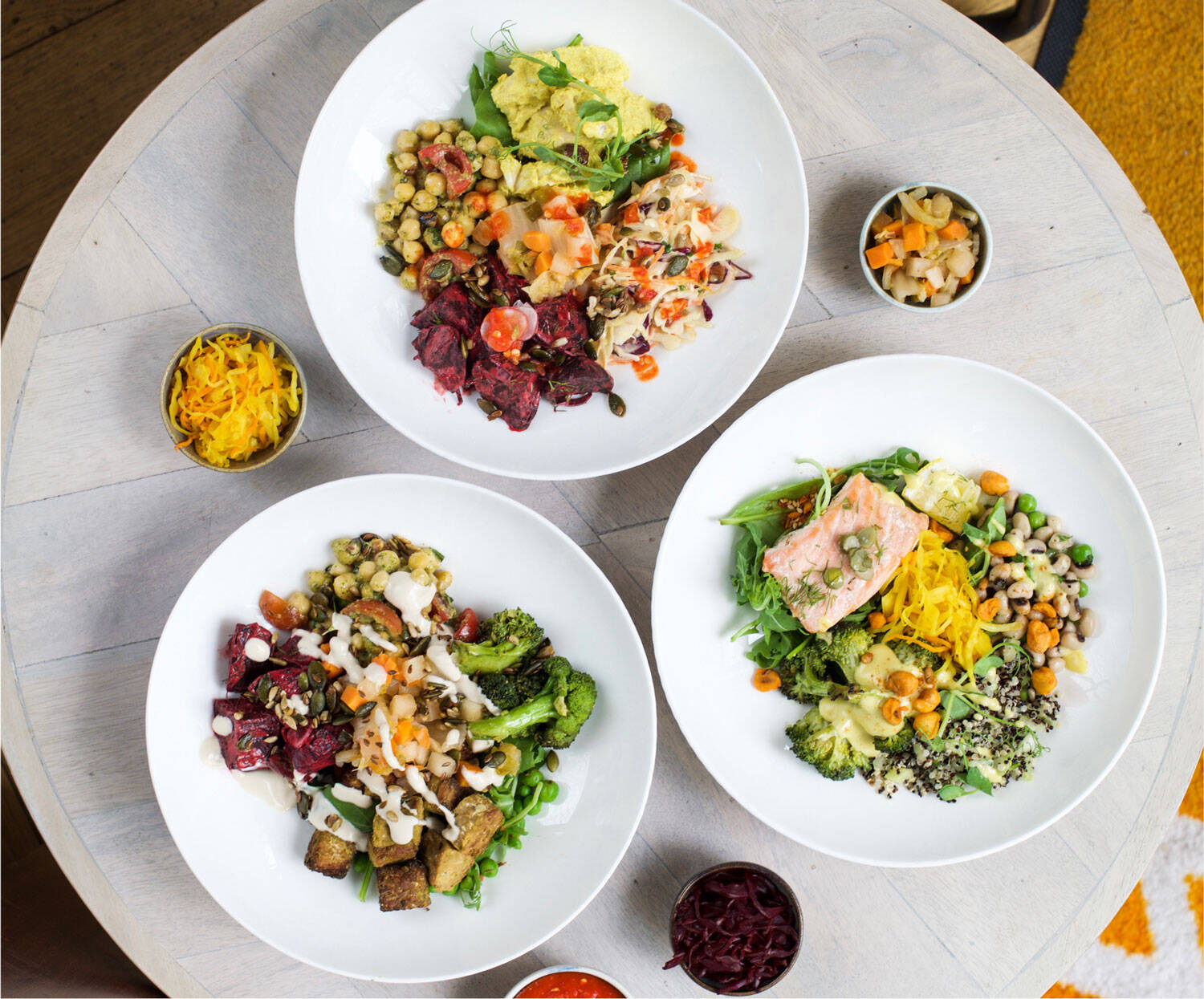
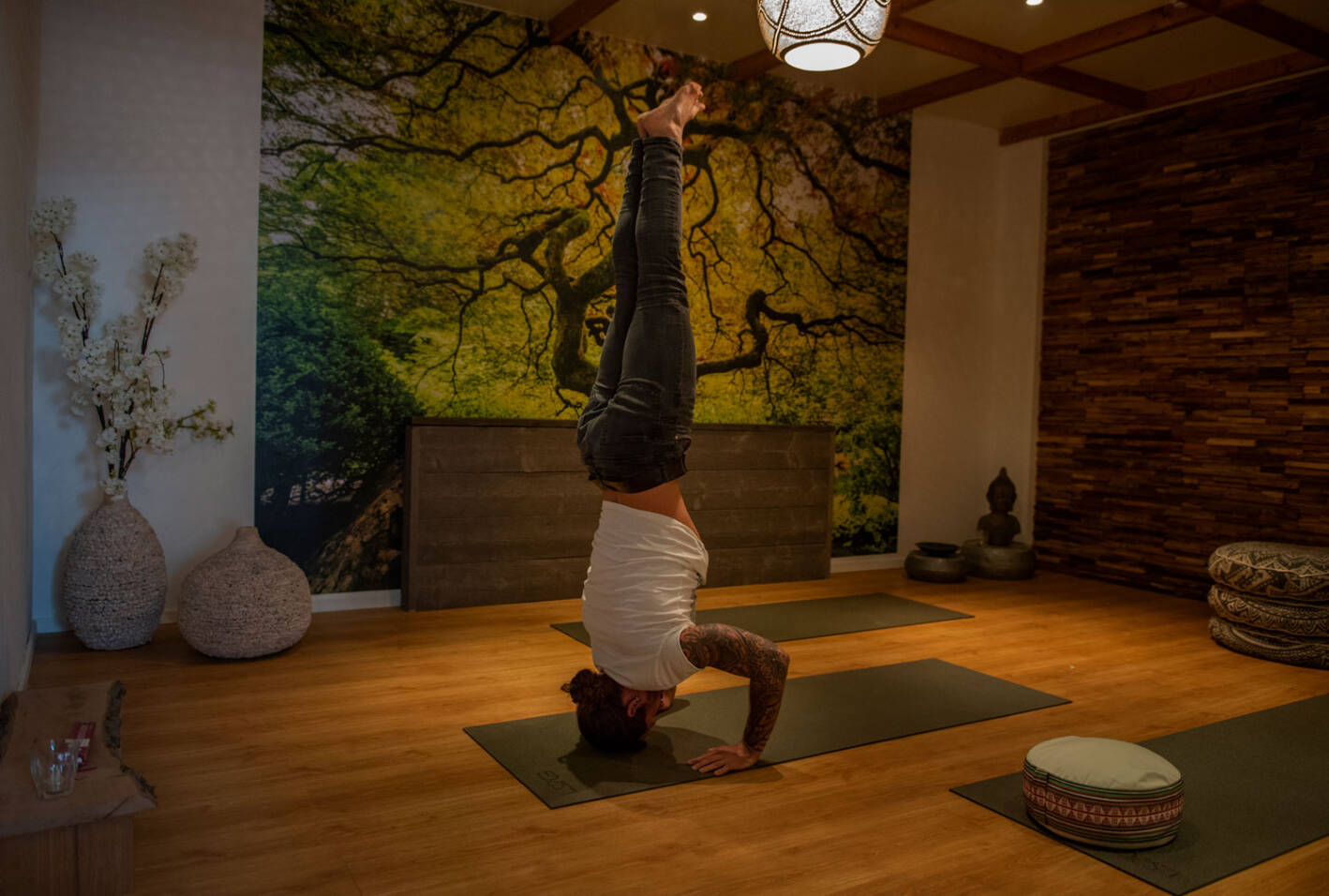
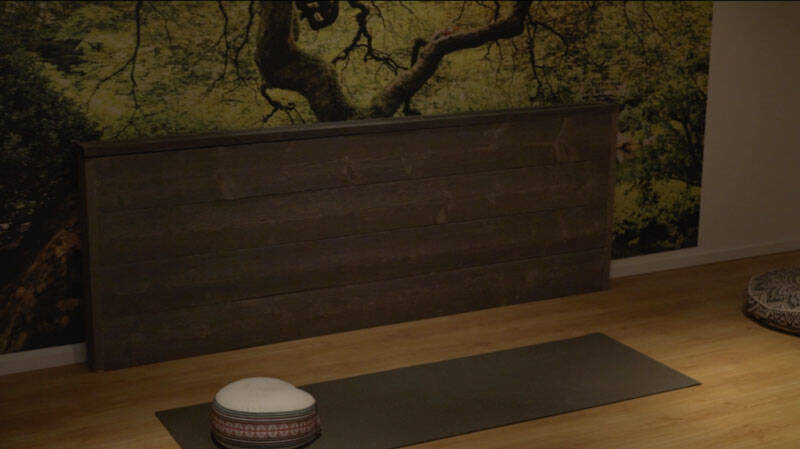

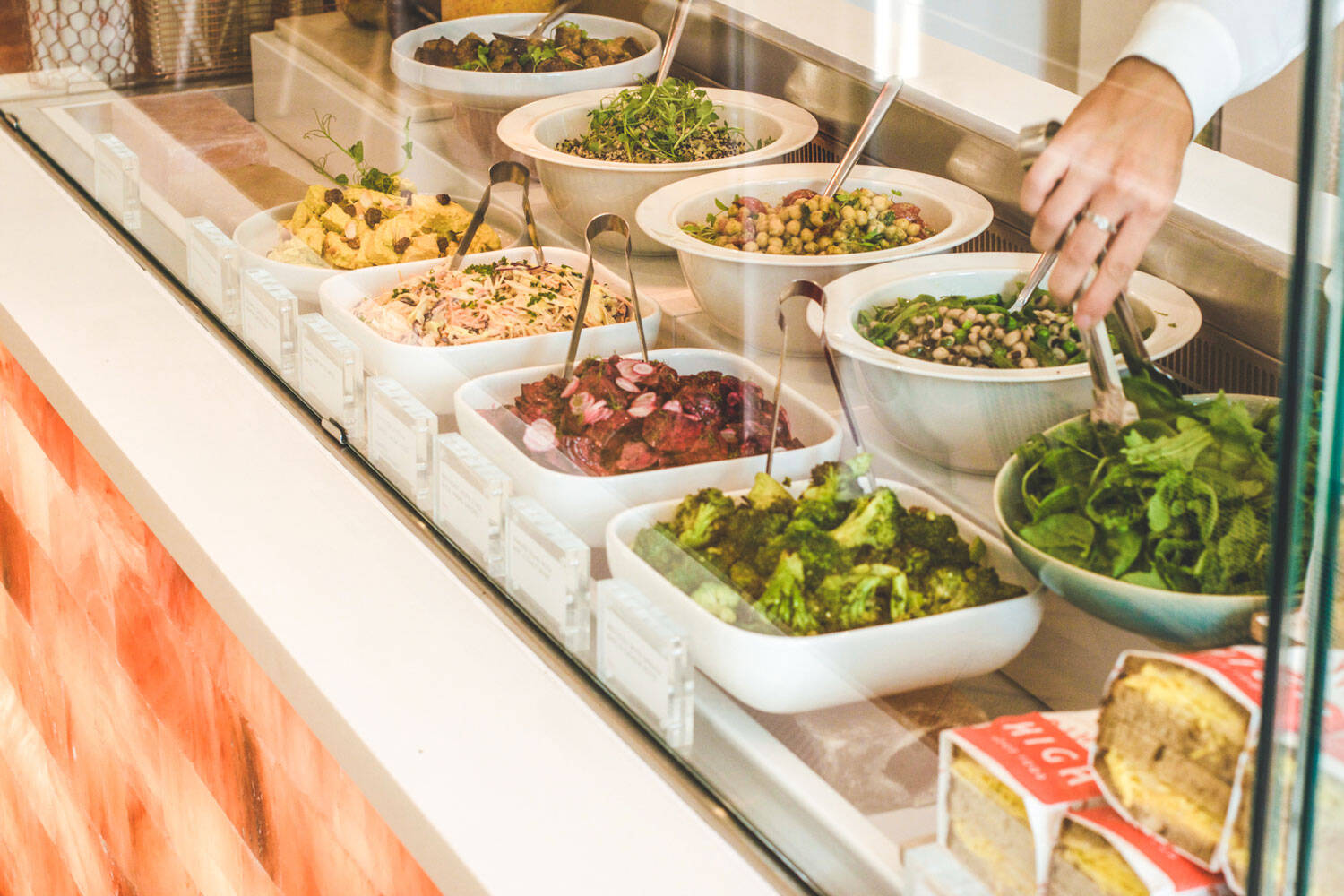
Jeremy Freeling Duke Xiao-Er Kong
Foodservice companies are realizing that they need to up their game when it comes to the mental health of their employees. Investing in mental wellbeing reduces absenteeism and increases work productivity. For the new generations of employees, the presence of a yoga room or an in-house burn-out coach is sometimes even a requirement.
YOUR BRAIN ON FOOD
Happy people, happy profit
25 Duke St, Marylebone, London W1U 1LD, The United Kingdom. www.highmoodfood.com
In Japan it’s completely normal to sleep whilst at work. The Japanese version of a work break is called ‘Inemuri’, which roughly translates into ‘sleeping while present’. Power napping during the work day ensures the necessary work efficiency. Naps help employees to maintain high performance levels and prevent mistakes. Especially in the afternoon when many people feel sleepy, it helps to have a quick power nap to improve concentration and boost creativity.
Work performance is affected when employees feel sleepy. That is why in Japan sleeping at work is not only accepted, it is seen as a sign that someone has worked hard. The Japanese clearly have little trouble falling asleep whenever and wherever they want. Maybe it’s a good idea to introduce this concept in our Western work culture. It would certainly give your afternoon at work a whole new twist.
NOTHING FOR BETTER WORK PERFORMANCE
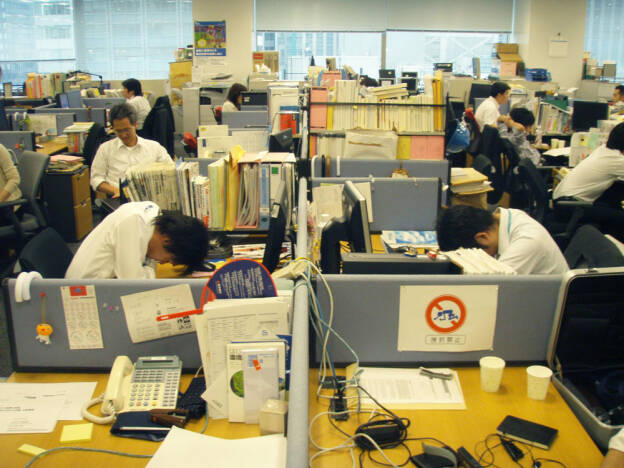
Delicatessen and food brand High Mood Food from the United Kingdom sees food as the generator that balances the body, soul and mind. Founder Ursel Barnes has a unique focus with her concept on intestinal health. Her menu consists mainly of live bacteria from fermented food, which is good for the gut flora. She applies her self-invented 5K model with five kinds of fermented food: Kefir, Kombucha, Kimchi, Kraut and Kamut Sourdough.
Ursel spent her childhood eating fermented food, homemade bread and doing lots of yoga in West Berlin. During her training as a burn-out coach, she learnt about the difference a healthy diet can make, both for your professional success and for your personal happiness. She believes that the complexity of the taste of fermentation is essential for intuitive cooking, which means that you cook exactly what you need. The savory taste of her 5K can even be addictive. According to Ursel, intuitive cooking is just as important as mental health.
FERMENTATION WITH A GREATER GOAL
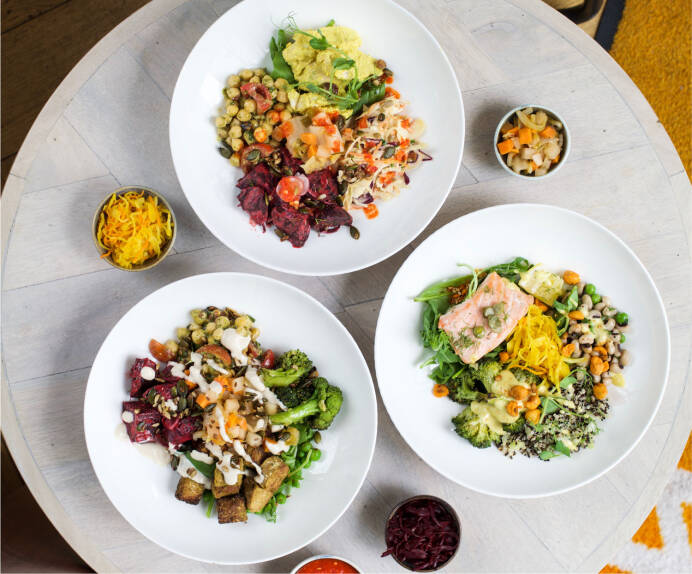
Chaud Devant, a Dutch company that supplies clothing for the hospitality industry, ensures that its employees stay fit and healthy. To achieve this, the organization created a meditation room in their office building. CEO and founder Bianca van der Lee explains that her team feels like one big family that she wants to take care of. Employees that enjoy their job are often prepared to go the extra mile and “I want to do something in return”. Bianca wants her meditation room to prevent her employees from getting burn-outs.
“I personally always have more ideas than time and I can go pretty fast. I realized that it’s sometimes necessary to take a step back. It is partly for this reason that I had the meditation room built. This way everybody can relax and take a moment for themselves.”
Lastly, Bianca attaches great importance to the mental and emotional wellbeing of her team. “I want people to feel nice and happy here”, she says. “By enjoying a healthy lunch together and frequently taking time to do fun things as a group, we provide a pleasant work environment.”
HEALTHY AND FEELING GREAT
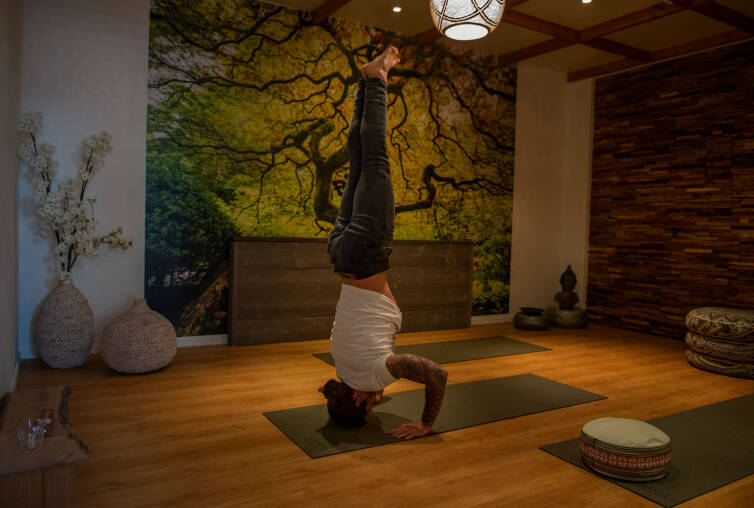
Since 2014, Zappos, an online shoe retailer from Las Vegas, makes use of holacracy. With this management model the company distances itself from traditional top down management. CEO Tony Hsieh uses it to establish a more self-managing and self-organizing company. Each employee can make changes, suggest innovations and make their voice heard within the company, without this having to be authorized from above. Faster and more creative decisions are just two of the multiple advantages.
The core values of Zappos, including delivering happiness, remain key as the company strives towards self-management. Since 2002, Tony offers his customers their ‘WOW service’. An important aspect of this is fostering customer delight. Holacracy is the tool that allows every employee to receive instant feedback from customers and respond to it. ‘Create fun and a little weirdness’ and ‘build a positive team and family spirit’ are mottos that are taken literally at the company. Everyone is expected to pleasantly surprise a customer or colleague with a ‘WOW’ at least once a day.
THE WOW SURPRISE EFFECT

which creates a different effect than when you view food as healing and cleansing for body and mind. The following companies look at food as the source that influences the mental constitution and consider relaxation, in the broadest sense of the word, as medicine for a healthy mind.
Most people know that physical health is related to their lifestyle (including exercise and diet). However, not everybody considers the link between food and mental health. It goes without saying that what we eat is related to the questions why and how.
You can look at food as the pure enjoyment of ‘filling the stomach’,
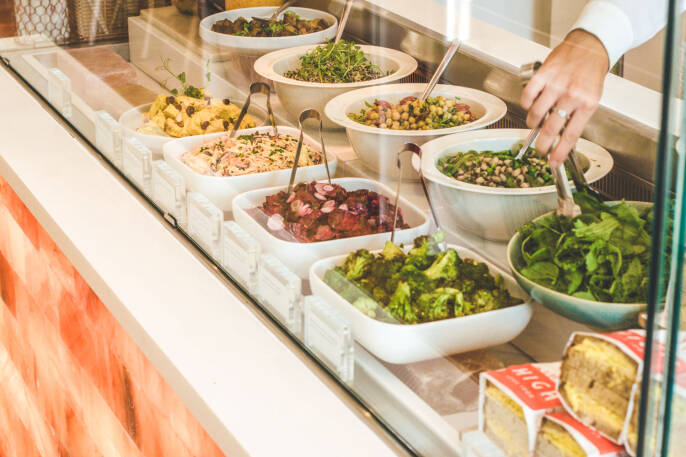
Jeremy Freeling Duke Xiao-Er Kong
Foodservice companies are realizing that they need to up their game when it comes to the mental health of their employees. Investing in mental wellbeing reduces absenteeism and increases work productivity. For the new generations of employees, the presence of a yoga room or an in-house burn-out coach is sometimes even a requirement.
YOUR BRAIN ON FOOD
Happy people, happy profit




